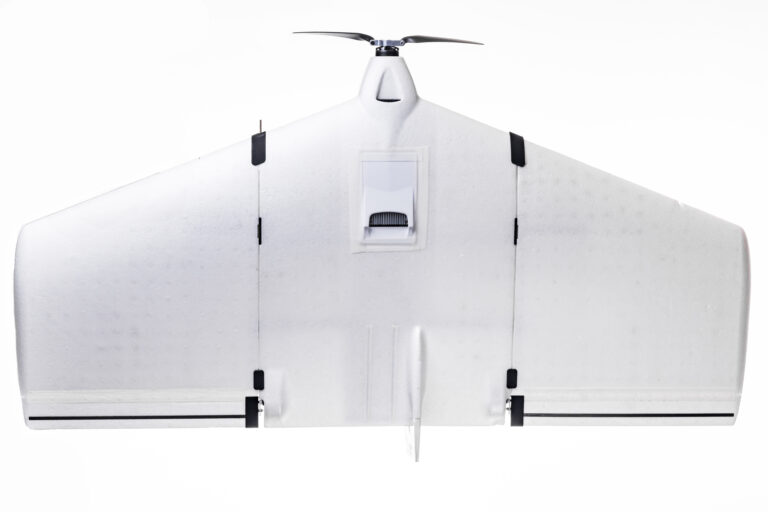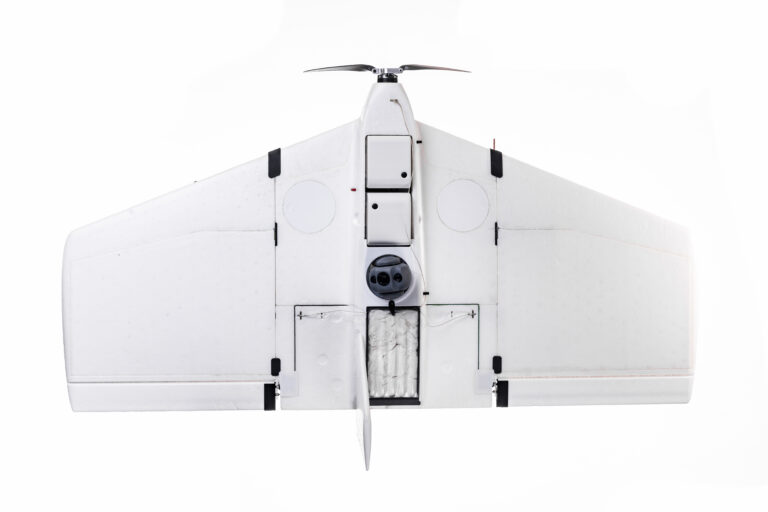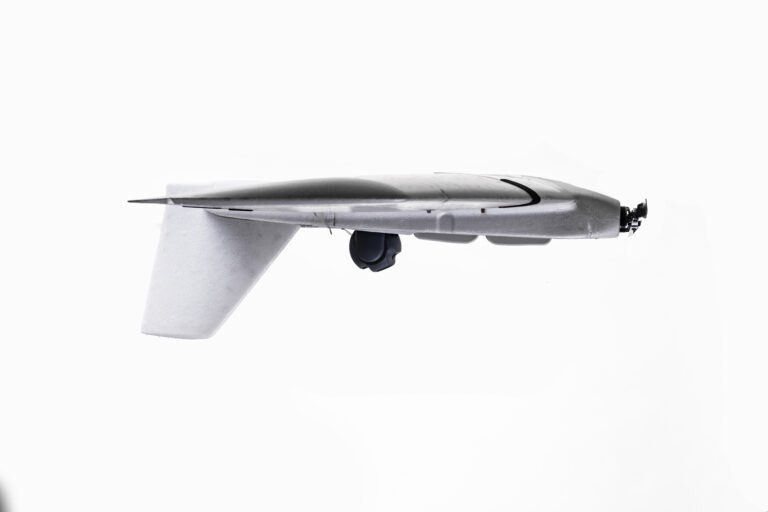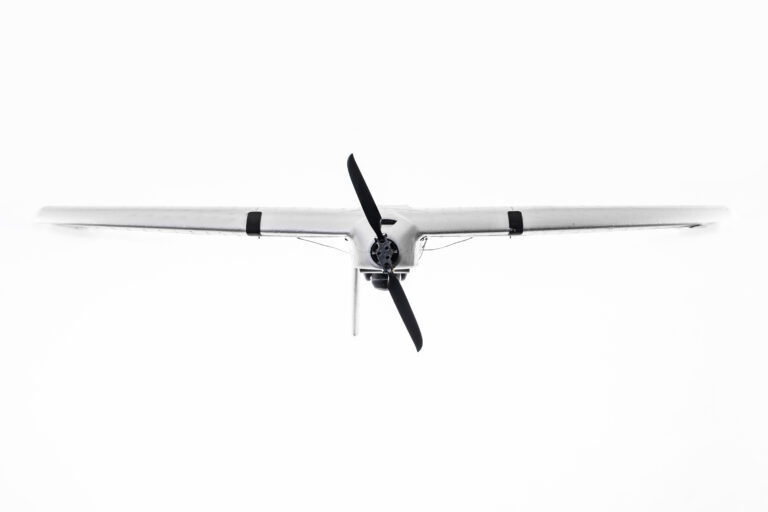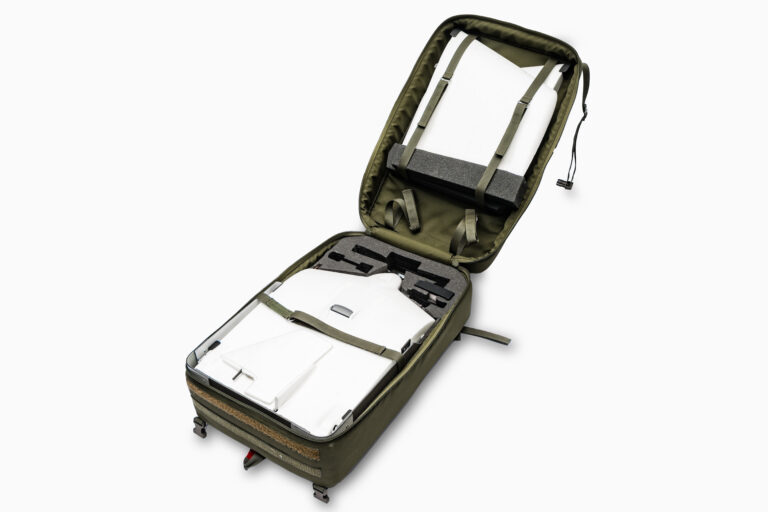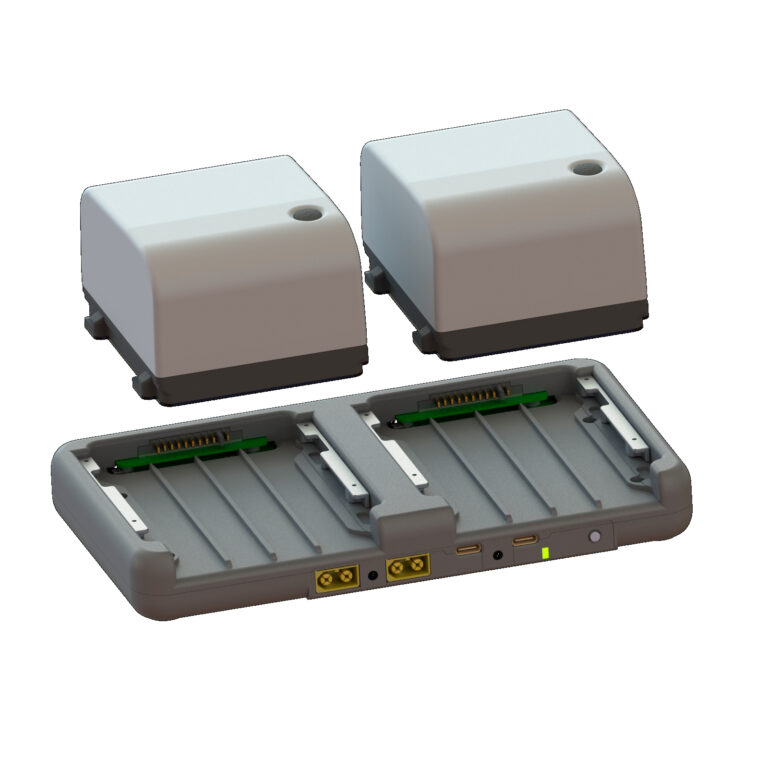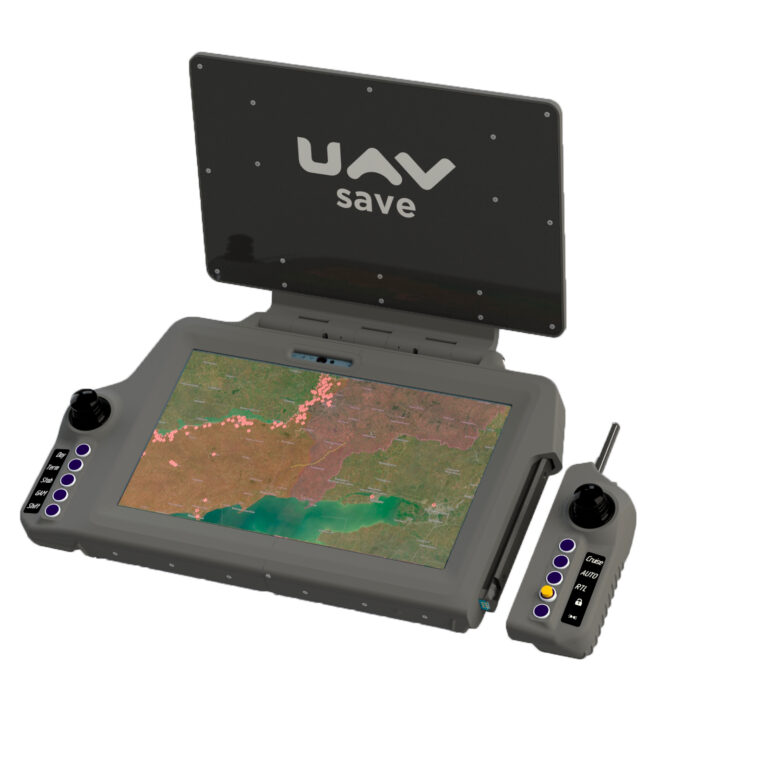Sparrow 2.0
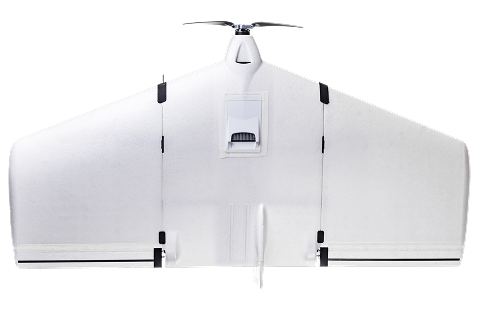
Sparrow 2.0
The UAV has several configuration options that change its tactical and technical characteristics depending on the components. The universal platform can have multiple equipment options. Depending on mission types and complexities, it can be used as:
- Scout
During a mission, the UAV conducts photo/video documentation of events and transmits the data to the operator.
- Component of the EW system
It can detect and identify various electronic devices (radios, radars, electronic warfare stations, etc.).
- Carrier
It can perform cargo delivery with payload activation.
- Stealth Scout
During a mission, the UAV conducts photo/video documentation of events internally, without transmission.
- Forward Observe
It can perform video surveillance and provide guidance for mortar calculations, artillery, etc.
- Searcher
It can conduct photo/video surveillance of events with maximum image quality and control over the field of view.
Weight
1.3 kg to 2.5 kg
FLIGHT DURATION
Up to 2 hours
SPEED
13 m/s to 30 m/s
Communication range
Up to 30 km
Mission range
Up to 110 km
Number of control channels
Up to 5 channels
Number of operators
One
Launch
Hand-launched
Landing
Parachute
Compatibility
Easy integration with any control systems
Design
Modular
Packaging
One backpack
Antenna extension by the operator
Up to 500 meters
Deployment speed
Up to 2 minutes
Stability
All-weather
The UAV is built on a modular principle, allowing for configuration of the aircraft based on specific tasks. It consists of modular components that have universal standardized mounting elements and interaction protocols (UAV-CAN), enabling quick and hassle-free replacement of different purpose-specific modules without the need for extensive modifications.
If necessary, the complex can be equipped with a handheld control unit, which also acts as a modem for receiving real-time metadata from the UAV during flight.
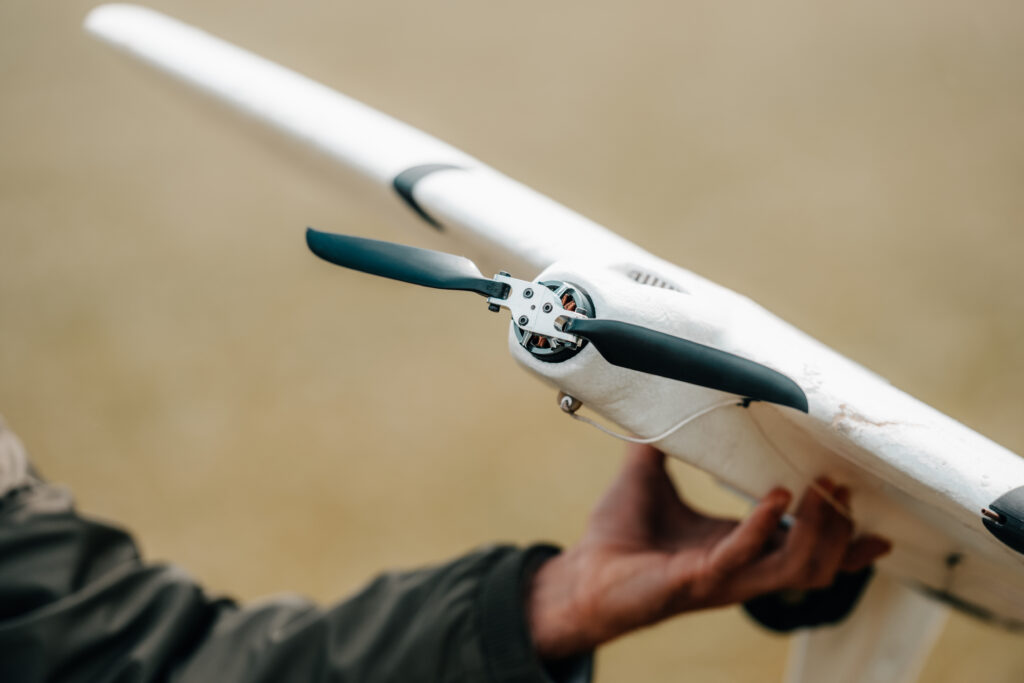
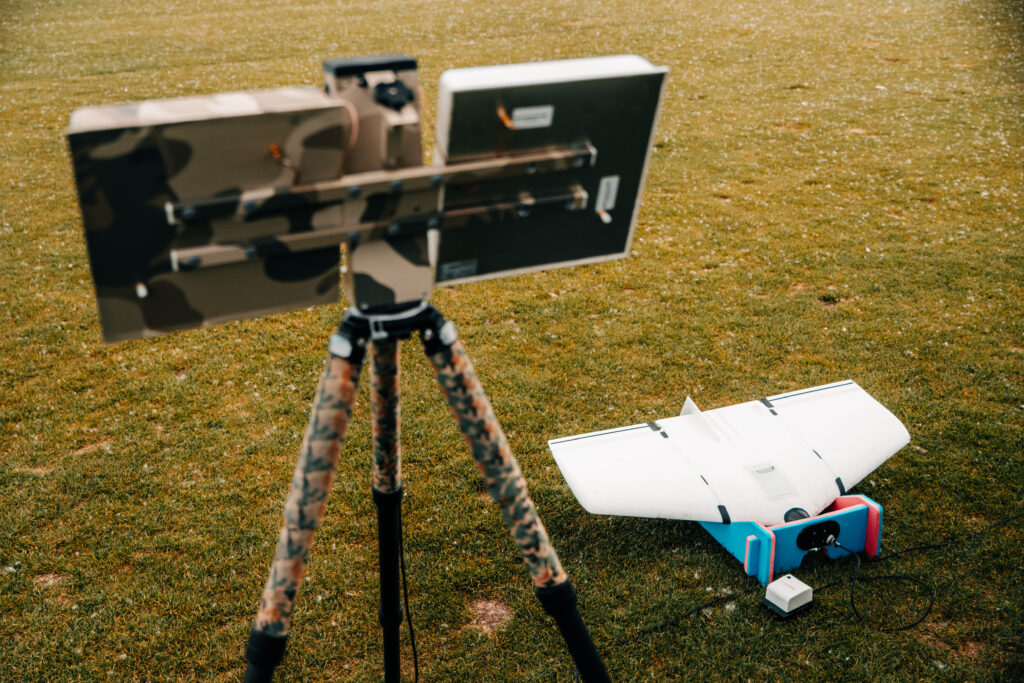
The complex can be controlled by compatible third-party ground stations, in the form of UAVs for simulation or reconnaissance purposes. In such a configuration, a mobile phone or tablet with the appropriate software can serve as the ground module for route loading and data reading.
The materials of the UAV and its components are specifically designed with maximum compatibility and interchangeability in mind during operation. The minimal number of components allows for the rapid assembly of the UAV from its constituent parts within minutes.
To conduct targeting and search operations, it is necessary to supplement the complex with a full-fledged terminal that includes control interfaces for the UAV's payload and a broadband communication system for receiving streaming data. Such a kit can have two types of communication: a secure and resilient one, resistant to radio reconnaissance and jamming, and a simpler one.
Self-diagnostic systems and continuous monitoring of all processes on board the aircraft help to avoid many issues that users may encounter.
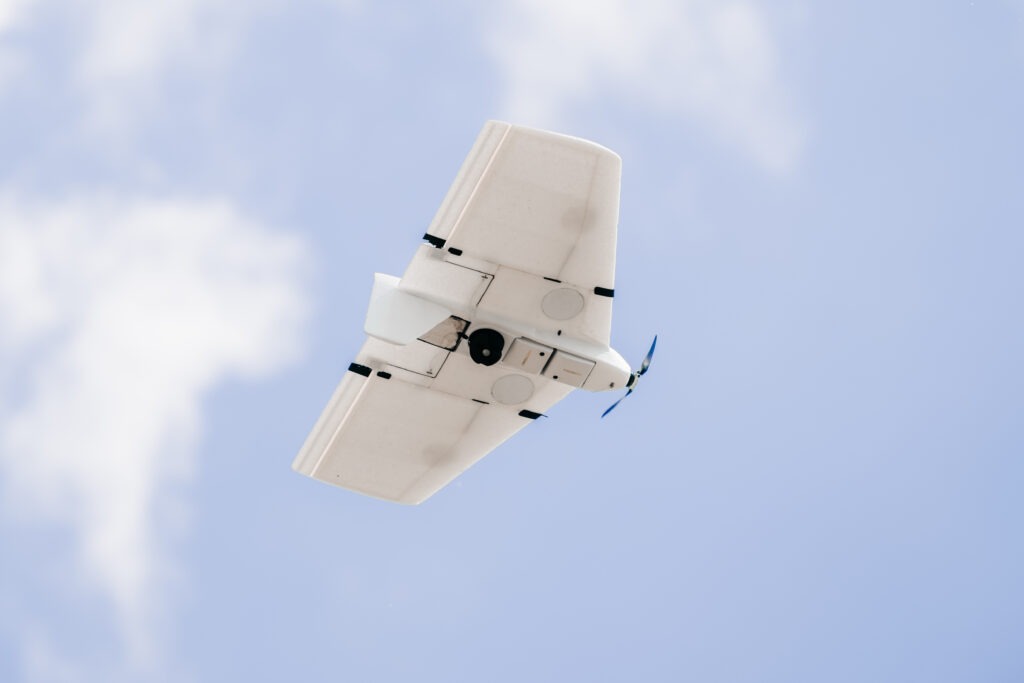
Printed version of information
